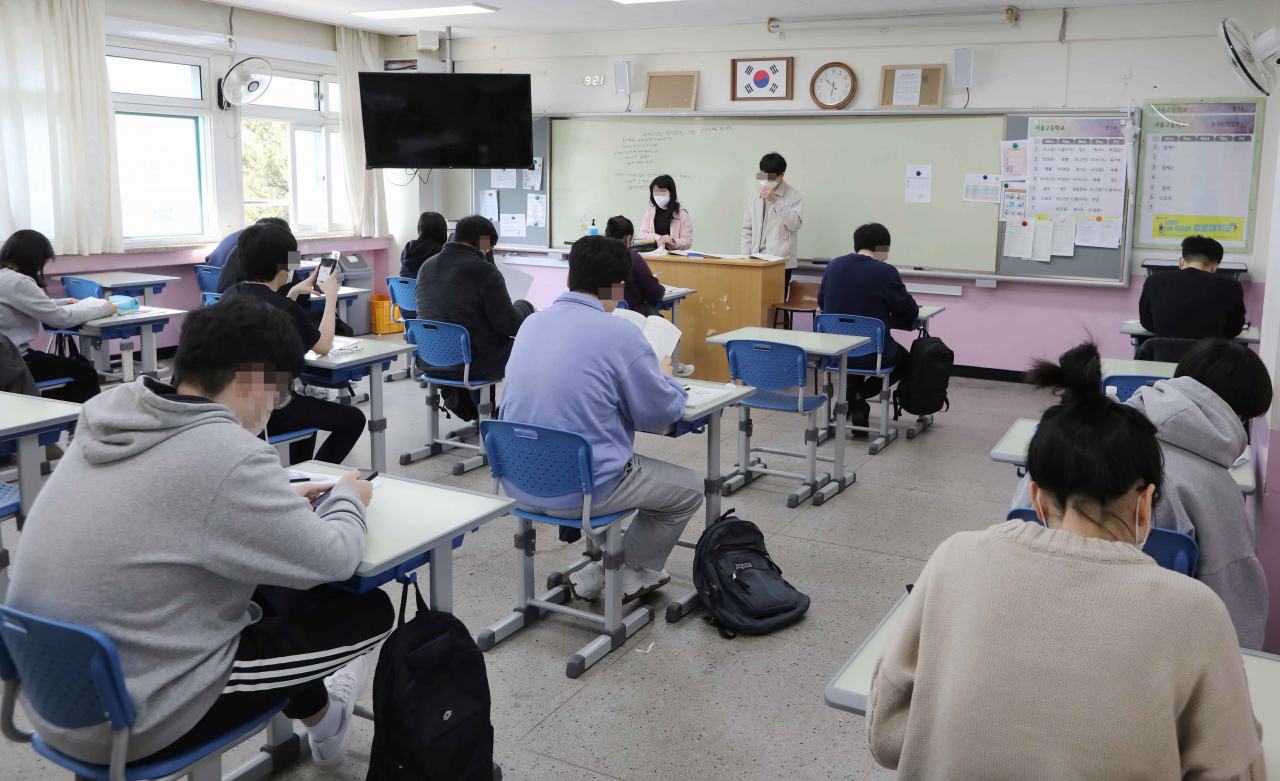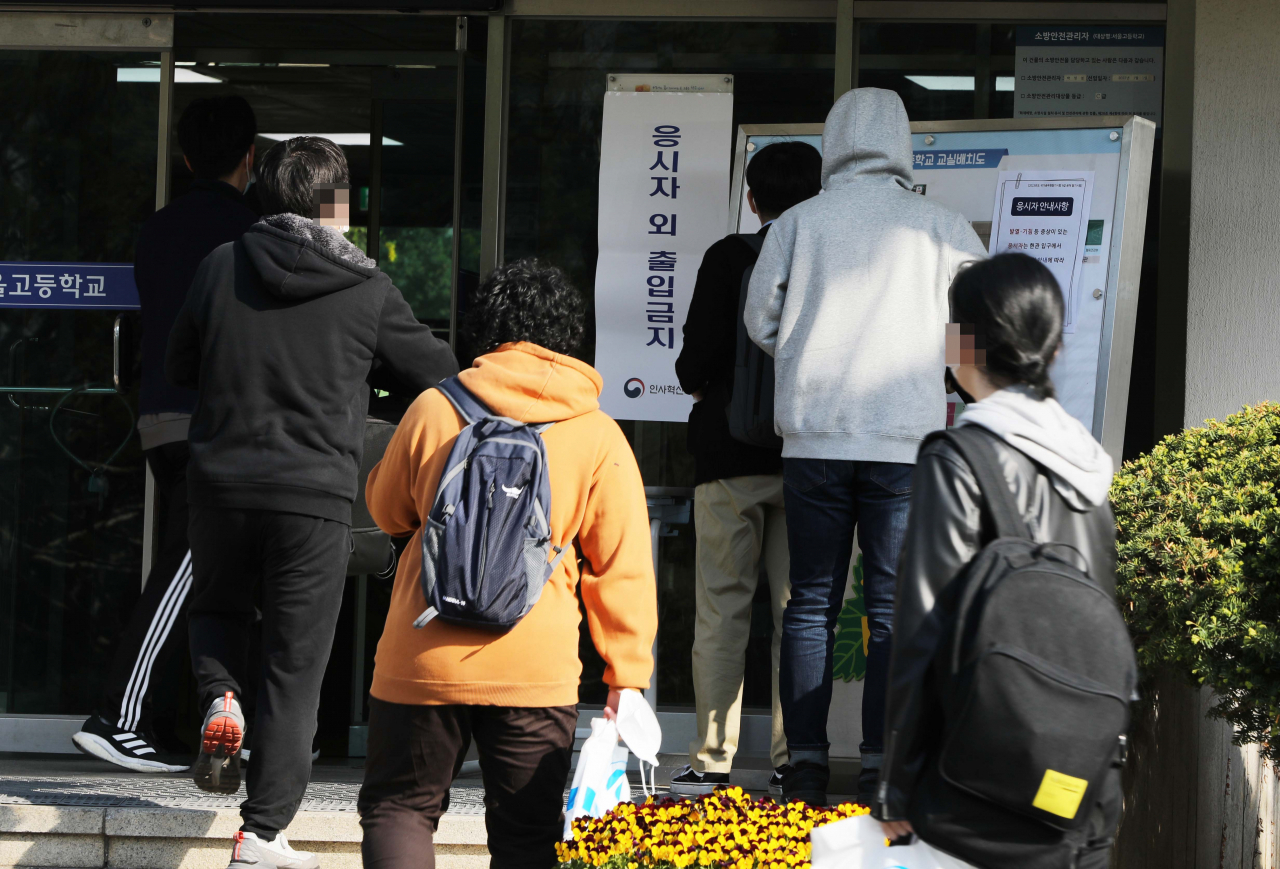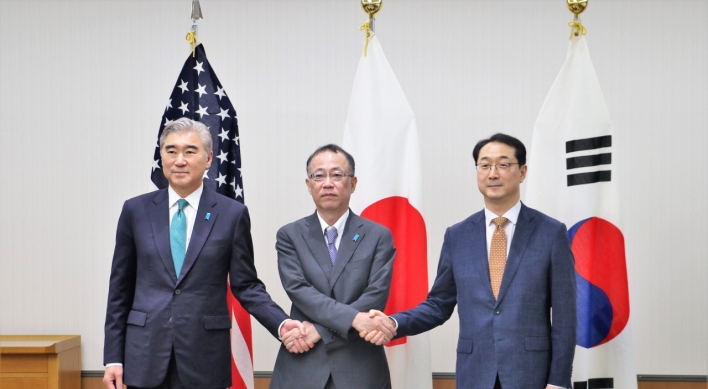From dream job to no-go: Civil servant jobs lose out
Pension, stability no longer trump individual purpose, career prospects for younger workers
By Yoon Min-sikPublished : April 18, 2023 - 15:35
Recent data shows that about half of the Seoul Metropolitan Government employees that quit their jobs last year had worked for less than five years at their posts. And in March, the Ministry of Personnel Management announced that competition for an entry-level civil servant job was its lowest in over 30 years.
The two separate studies point to one thing: Civil servant jobs, once highly coveted by young workers, are no longer dream jobs here. The job security and pension are not enough to retain or even attract younger generations of workers who increasingly prioritize individual purpose, a horizontal and efficient work culture, immediate compensation and career prospects.
Dream jobs of the past
This year’s competition for a government employee job with the lowest rank of 9 was 22.8-to-1, the lowest figure since 19.3-to-1 in 1992. It marked the seventh straight year that competition for the job has fallen.
But there was a time when entry-level civil servant was considered the dream job, a trend that peaked in 2011 when you had to beat out 92 other applicants to get hired. In fact, “government agency” had topped the list of preferred workplaces in the 13-34 age group in Statistics Korea surveys for over 10 years since 2006, relinquishing its crown only in 2021 to “major corporations.”
Such government posts were once dubbed “iron rice bowl” jobs for their life-time job security.

They meant two things: First, your employer would almost never go out of business and second, you would not need to worry about getting fired.
These aspects were never more appealing than in the aftermath of the 1997 Asian financial crisis, when Koreans first experienced mass layoffs and saw even titans like Daewoo Group fall.
As a government employee in South Korea, it is very difficult to get fired. The ordinance on punishments for government employees decrees that one may be removed from one’s post only after a severe breach of his or her duties or the law.
According to data from the Ministry of Personnel Management, 211 government employees were fired in 2021, accounting for 0.03 percent of the 750,824 across the country.
Another major draw for becoming a civil service job had been the pension.
The Government Employees Pension’s payout had been more generous than that of the National Pension Service's program.
This, however, changed with a 2015 a reform that reduced civil servants’ pension benefits.
Ditching ‘iron rice bowl' jobs
A job that you can never be fired from is a double-edged sword, according to Kang Na-yun (not her real name), a Sejong City official who started work in 2019. She explained how job security at the absolute highest level in a Korean government institution can be counterproductive, as there is no motivation for a civil servant to excel at his or her job.
“If you’re singled out at work (for being good at work), the only reward you get is even more work. People start dumping their work onto you, and it’s not as if they even appreciate it,” she said.
Among the most obvious reasons people are turning away from iron rice bowl government jobs is that they just do not pay enough.
Seoul Metropolitan Government recently conducted a survey of 550 newly employed government officials about their biggest concern, and 28 percent answered “financial issues from a low salary.” The starting monthly salary for a grade 9 civil servant is 1.77 million won as of 2023, less than the approximately 2 million won that one would earn by working the same number of hours for minimum wage.

Of course entry-level civil servants are entitled to a lunch stipend, holiday bonuses and other benefits, but even with those, the monthly salary hovers around the 2.1 million won range. In contrast, the starting salary for jobs at major corporations in 2022 was 53.56 million won -- which works out to a monthly salary of nearly 4.5 million won.
While comparatively fewer work hours had previously been touted as an advantage of working for the government, the younger generation is saying that is no longer a valid selling point. The Ministry of Interior and Safety said last month that the government is planning to hire a total of 18,819 new employees across the country this year, a 34.5 percent drop from the year before.
Last year, the government rolled out a plan to freeze the number of civil servants for the next five years, reducing its staff quota by 1 percent every year through personnel reassignments.
“At first, I thought things would be easy once I get promoted. But I don’t think it’ll be easier even if I get to the managerial level, since the government keeps reducing the number of employees,” said Kim Seo-yeong (not her real name), another Sejong government employee who was hired in 2019. “So much for work-life balance.”
In the aforementioned Seoul survey, 17 percent of respondents said their biggest concern is a rigid work culture, referring to the culture of stressing the importance of conforming to the group over individual merit and self-expression, instead emphasizing hierarchy, customs and traditions.
“As a group, (civil servants) don’t welcome unique characteristics. Since having a personality or standing out makes you a target, we are advised (by our superiors) to hide ourselves as much as possible,” said Kang. “If we do (stick out), people talk behind our backs, and in the most distorted ways, too.”
A 26-year-old woman surnamed Choi, who just started working at the Ministry of Justice, said she was shocked by how “authoritative” the work environment felt. “My current boss is always going on about how the young employees should ask their superiors first when they go out for a meal, or even when they go get a cup of coffee. I like to hang out with my colleagues, but he seems to have a problem with it,” she said.
With the Asian financial crisis now in the distant past, it appears that the benefits of not having to worry about being laid off are quickly losing their importance among younger generations who are now demanding to work in a better environment.



















